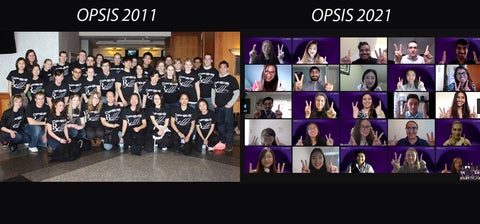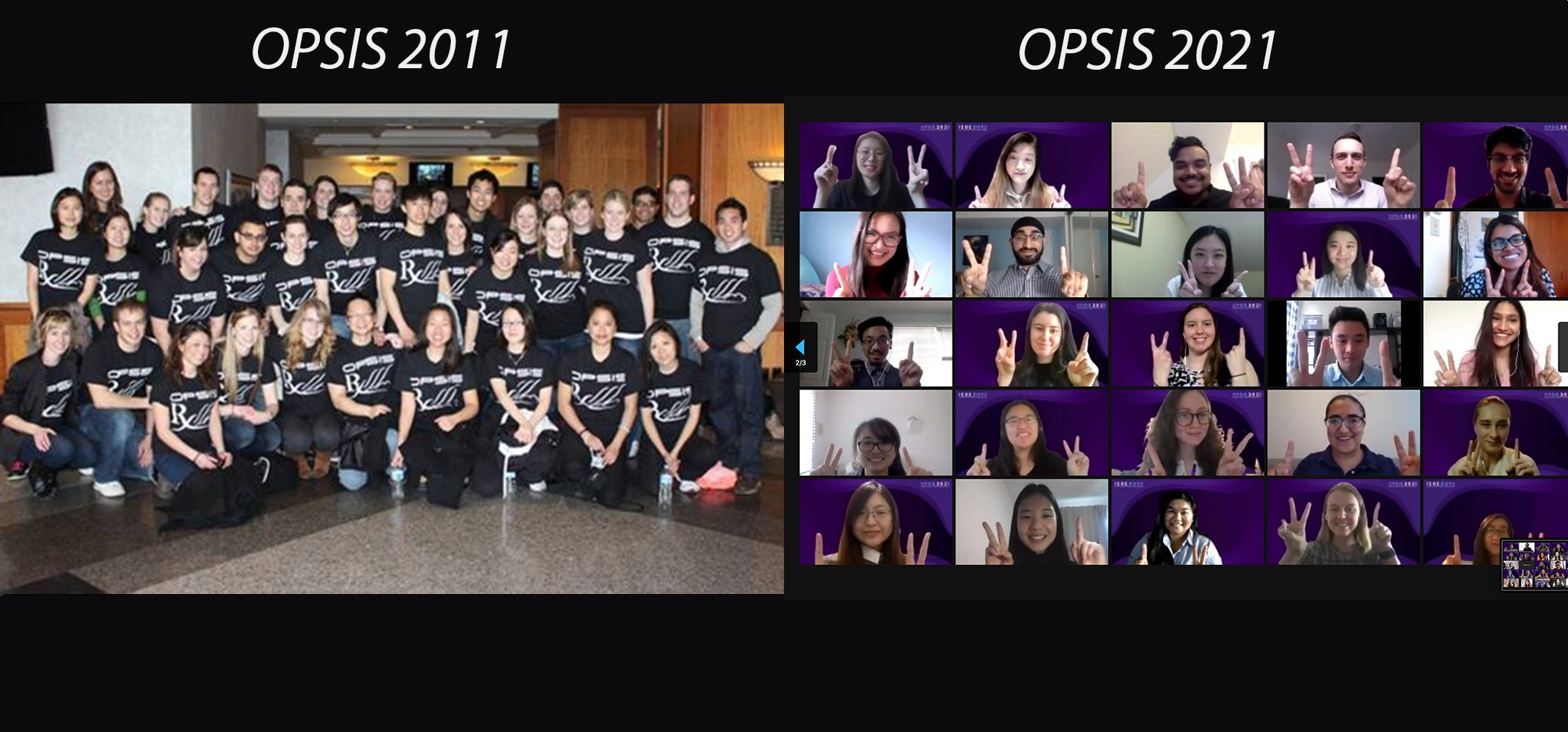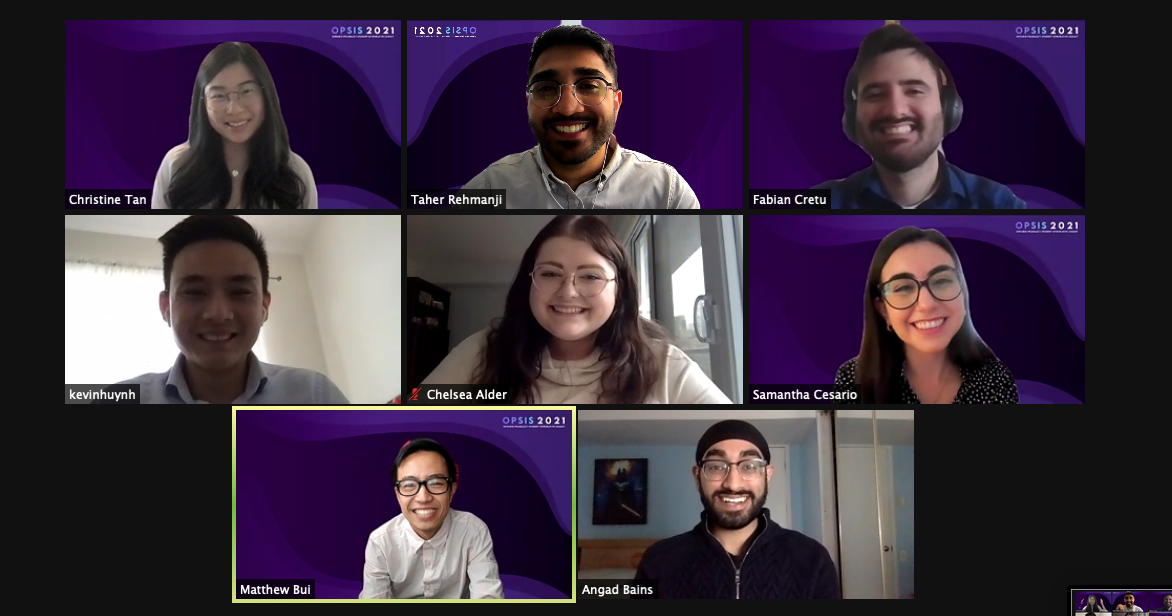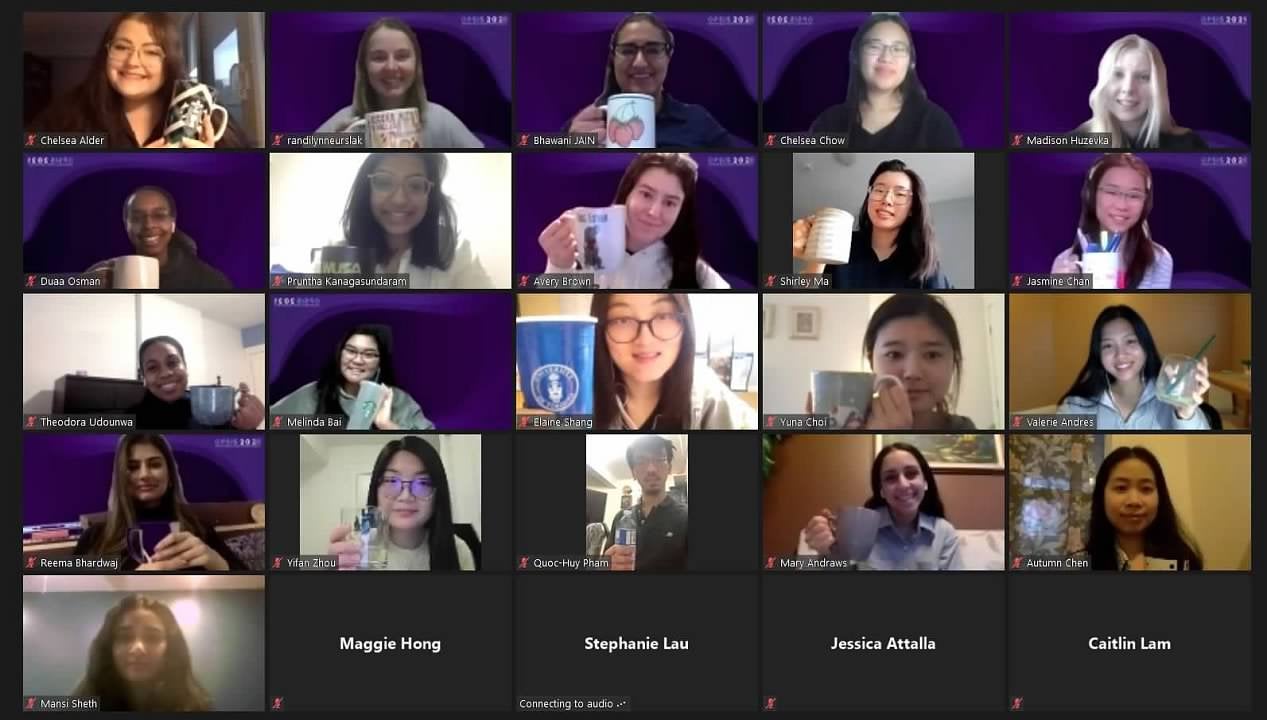
Pharmacy student leaders take annual conference online for Ontario pharmacy students

2021 marks 10 years since OPSIS was founded. Left: participants in the first OPSIS conference in 2011. Organizers for that conference included Kaitlin Bynkoski and Robyn MacArthur who are current staff and faculty for the School. Right: Participants in OPSIS 2021.
The annual Ontario Pharmacy Student Integrative Summit (OPSIS) is a student-run conference jointly organized by University of Toronto and University of Waterloo students. Students from both schools are invited to attend and the event combines social activities with case competitions, debates and discussions of hot topics in pharmacy.
COVID-19 struck just before the 2020 OPSIS conference, resulting in cancellation of the event. This year, the planning committee – SOPhS President (Taher Rehmanji) and Vice President (Matthew Bui) and UofT’s Fabian Cretu (UPS President), and Samantha Cesario (VP) – committed to taking this event online for the first time.
“Events like OPSIS provide our students an opportunity to build bridges across institutions, to learn about emerging and important health-care topics, and to begin building the professional networks that they will carry into their careers,” says Andrea Edginton, Hallman Director of the School of Pharmacy. “The School is proud to support the OPSIS conference.”
Taking OPSIS online

The OPSIS planning team
“Social engagement is a priority for OPSIS,” Rehmanji says. “It was a massive challenge to be able to capture that engagement in an online format. We were very cognizant of the Zoom fatigue that was creeping up on students as the term was coming to an end. To overcome this, we tried our best to bring energy during every single event.”
SOPhS has experience leading engaging online events and applied lessons learned from phrosh week and other events to adapt OPSIS’ usual programing in an interactive way. The conference included a case competition, debates, social events, a grad panel and talks from a variety of speakers. Unique events included a world cafe where delegates were put in random groups to discuss emerging and relevant topics in health care.

Delegates participating in the world café event
Exploring current issues in pharmacy
“All our events were a success, and some thrived in the online format,” Rehmanji says. “Both the debates and case comps required plenty of teamwork and challenged delegates to either develop their therapeutic competencies or think about pharmacy-related topics from a different perspective.”
The grad panel was also particularly well-received. The event invited successful alumni from both schools to share their career path, and it included alumni working in a variety of fields.
“The grad panel was very inspirational for attendees,” Rehmanji says. “It was a panel of recent graduates, who had taken drastically different pathways in pharmacy, and all found great success. We found it to be extremely relatable to all attendees and provided a lot of value.”
OPSIS is designed with relevancy in mind and talks explored concerns of the day, focusing on topics such as social justice and health care, pharmacy in a post-pandemic world and collaborative health-care practice.
“This conference blew our expectations away in terms of delegate engagement and energy,” Rehmanji says. “It truly was an exemplary display of professionalism by everyone involved, and I feel that anyone who joined including myself, became a better prospective pharmacist because of it.”
OPSIS is made possible by financial support of the University of Waterloo School of Pharmacy, the Leslie Dan Faculty of Pharmacy at the University of Toronto and Pharmasave.